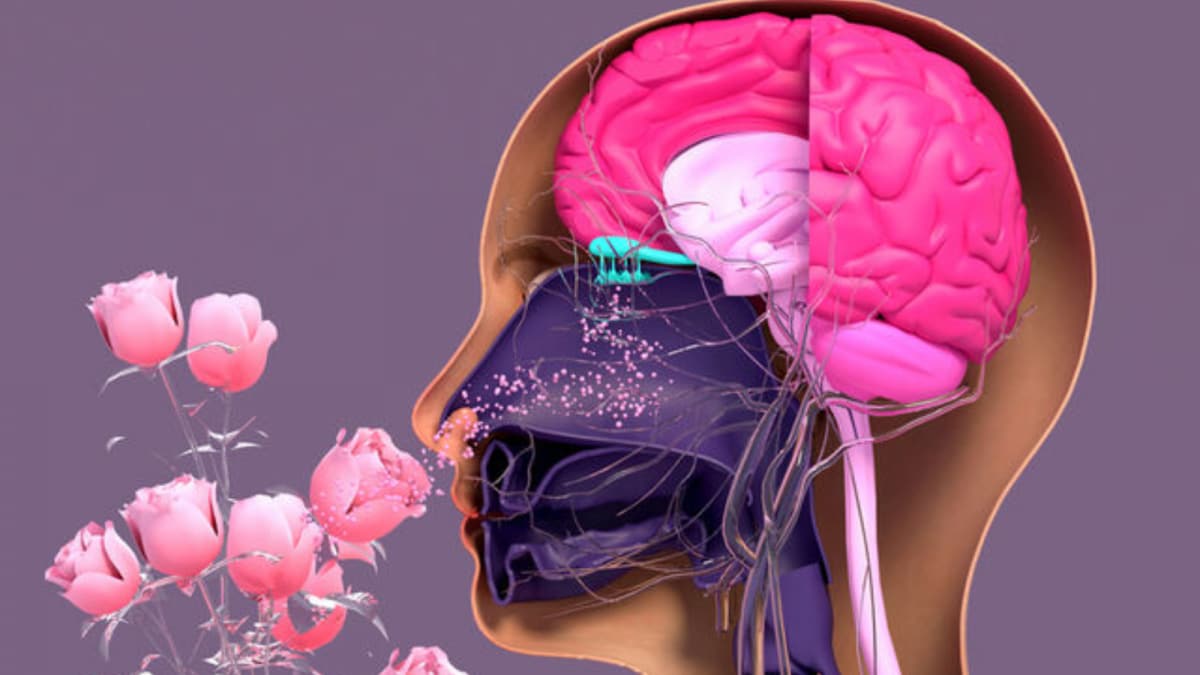Last Updated:
Smell is far more than just a sensory experience, it is a pathway to the past

Smell alone has the remarkable ability to awaken long-forgotten memories with clarity and precision
Smell is one of the most formidable and mystical of the five senses. Even though sights and sounds play a prominent role in how we perceive the world, even the faintest smell can transport us back in time. Smell alone has the remarkable ability to awaken long-forgotten memories with clarity and precision. This is rooted in the extraordinary relationship between the olfactory system and the brain’s memory centers.
Dr. Syamlal S, Senior Consultant, Department of Neurology, KIMSHEALTH, Trivandrum shares all you need to know:
Smell – The Special Pathway
When we smell something, odor molecules travel through the nose to receptors in the olfactory epithelium. These signals are then sent directly to the olfactory bulb, which is closely connected to the amygdala and hippocampus—the two regions of the brain that play distinct roles in memory and emotion. This pathway is unique because, unlike other senses such as sight and sound that first pass through the thalamus before reaching higher brain areas, smell bypasses this relay system. This creates a direct and emotional link to memory.
Emotional Weight of Smell Memories
Because the olfactory system is so closely wired to the amygdala, which processes emotions, smells often elicit not just memories but also the emotions surrounding them. For example, the scent of jasmine can invoke childhood memories that bring feelings of warmth and nostalgia. These emotional recollections, called the “Proustian effect” after French writer Marcel Proust, can remain dormant for many years until triggered by a familiar fragrance.
Why Forgotten Memories Resurface
Not all memories are easily accessible. Many remain in long-term memory but fade from conscious recall. Smells can act as powerful retrieval cues that reawaken these hidden traces. Unlike visual or verbal reminders, which may only partially bring memories back, smells often revive them vividly. This happens because the hippocampus, responsible for integrating experiences into long-term memory, works in tandem with olfactory signals to “reopen” these mental files.
A Survival Mechanism?
From an evolutionary perspective, this powerful link between smell and memory was crucial for survival. Early humans relied heavily on smell to detect food, predators, mates, or dangerous environments. Remembering the smell of spoiled meat, toxic plants, or the comforting scent of a safe place could mean the difference between life and death. Even today, this wiring persists, giving smell a special role in triggering instinctive and emotional memories.
Modern Implications
The unique connection between smell and memory continues to spark interest. For patients with dementia or Alzheimer’s disease, exposure to familiar scents can sometimes revive personal memories and improve mood. Similarly, aromatherapy is used to reduce anxiety, improve sleep, and create a positive emotional state.
Smell is far more than just a sensory experience, it is a pathway to the past. By directly engaging the brain’s emotional and memory centers, smell can recall forgotten experiences with striking clarity. It reminds us that memory is not stored only in words or images, but also in the invisible and even in the air we breathe.

Swati Chaturvedi, a seasoned media and journalism aficionado with over 10 years of expertise, is not just a storyteller; she’s a weaver of wit and wisdom in the digital landscape. As a key figure in News18 Engl…Read More
Swati Chaturvedi, a seasoned media and journalism aficionado with over 10 years of expertise, is not just a storyteller; she’s a weaver of wit and wisdom in the digital landscape. As a key figure in News18 Engl… Read More








